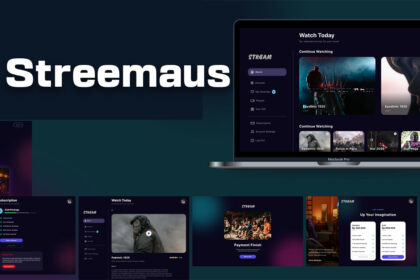In an era where storytelling has gone digital, podcasts have emerged as one of the most powerful and personal mediums for communication. Whether it’s long-form interviews, short daily insights, or immersive audio dramas, podcasts give creators the freedom to connect with listeners anywhere — during commutes, workouts, or quiet evenings at home. But with over five million podcasts available worldwide, many aspiring creators struggle with one crucial question: What should my podcast be about?
Coming up with podcast ideas that are fresh, engaging, and sustainable takes more than just creativity; it requires clarity about your purpose, audience, and unique perspective. This article explores how to generate, refine, and execute podcast ideas that stand out — and offers dozens of themes and formats to inspire your next great audio venture.
Why Podcast Ideas Matter
Your idea is the foundation of your show. It shapes not just the content but also the tone, audience, and longevity of your podcast. A great podcast idea must do three things:
-
Resonate with a specific audience. You don’t need to appeal to everyone — only to the listeners who care deeply about your topic.
-
Sustain long-term content. The best ideas can evolve into multiple episodes, seasons, and spin-offs.
-
Reflect your personality and expertise. Audiences connect to authentic voices, not generic hosts.
Before recording a single episode, invest time in refining your concept. A well-crafted idea will save you countless hours later and ensure your show feels coherent and compelling from day one.
How to Find Your Podcast Niche
The best podcast ideas come from the intersection of passion, knowledge, and audience demand. Start with these guiding questions:
-
What topics do you love talking about even when no one’s listening?
-
What problems or questions do people often ask you for advice on?
-
Are there underrepresented voices or untold stories in your field?
-
What are you curious about learning or exploring over time?
Once you brainstorm a list, narrow it down by researching competitors. Check podcast directories like Apple Podcasts, Spotify, or Podchaser to see what already exists. If similar shows dominate the space, find a unique angle — a different format, tone, or target demographic — that makes your take stand out.
For example, if there are dozens of “entrepreneurship” podcasts, you might niche down to “entrepreneurship for creative freelancers” or “small business stories in rural America.” Specificity breeds loyalty.
Popular Podcast Categories and Creative Ideas
Below are some of the most successful podcast categories — along with unique concept ideas within each to spark your creativity.
1. Storytelling and True Life
These shows thrive on narrative — real or fictional — that captivates listeners with emotion and suspense.
-
True Tales of Resilience: Interview people who have overcome extreme challenges and reflect on how they rebuilt their lives.
-
Everyday Legends: Spotlight ordinary people with extraordinary stories — a janitor who paints masterpieces, a teacher who saved a local library, etc.
-
Audio Diaries: Record personal reflections about your daily life, growth, and lessons learned — like a public audio journal.
-
Local Lore: Explore the myths, ghost stories, and unsolved mysteries of your hometown or region.
Why it works: Storytelling connects emotionally. When done right, listeners keep coming back for the next chapter.
2. Education and How-To
If you have expertise or curiosity in a specific field, educational podcasts let you share value with your audience.
-
Skill School: Teach a new skill each week — from writing effective emails to gardening or cooking.
-
The Curious Mindcast: Break down complex topics (AI, history, psychology) in an approachable, conversational style.
-
Language Lovers: Teach vocabulary and culture through stories, idioms, and interviews with native speakers.
-
History Reimagined: Bring forgotten or lesser-known historical events to life with dramatized storytelling.
Pro Tip: Education podcasts benefit from structure — keep lessons concise and actionable so listeners leave feeling smarter each episode.
3. Comedy and Entertainment
Laughter is one of the most universal forms of connection, and comedy podcasts dominate charts for good reason.
-
The Awkward Archive: Share funny personal stories about embarrassing moments and invite guests to do the same.
-
Fictional Fails: Recreate hilariously bad movie scenes or rewrite famous film endings in absurd ways.
-
Life According to Memes: Discuss viral memes, TikToks, or internet trends from a comedic perspective.
-
The Roast Room: Light-heartedly “roast” everyday situations — bad bosses, dating apps, or modern habits.
Why it works: Comedy podcasts don’t just entertain — they build community through shared humor and relatability.
4. Health, Wellness, and Mindset
In a fast-paced world, listeners crave calm, balance, and meaning. Podcasts in this category help people slow down and grow.
-
The Mind Reset: Guided meditations, affirmations, and reflections for daily peace.
-
Body Talk: Candid conversations about fitness, nutrition, and mental health without the toxic perfectionism.
-
The Science of Happiness: Explore the latest psychology and neuroscience research on well-being.
-
Healing Voices: Share personal recovery stories from addiction, anxiety, or burnout — focusing on hope and resilience.
Pro Tip: Keep the tone empathetic and authentic; listeners respond best to vulnerability and practical advice.
5. Culture, Society, and Current Affairs
For those who love analysis and discussion, this genre provides endless opportunities.
-
Voices of Change: Interview activists and changemakers creating social impact in their communities.
-
Culture Decode: Break down movies, books, and pop culture trends to understand what they say about society.
-
Tech and Tomorrow: Explore how innovations like AI or biotechnology are reshaping human life.
-
Global Diaries: Invite guests from around the world to share stories of everyday life in different countries.
Why it works: Cultural podcasts appeal to intellectually curious listeners who crave depth and fresh perspectives.
6. Business, Finance, and Career Growth
These shows empower listeners to make smarter choices about work and money.
-
Side Hustle Stories: Document your journey building an income stream from scratch.
-
The Modern Manager: Share tips for leadership, communication, and workplace well-being.
-
Money Myths: Debunk common misconceptions about investing, saving, or credit.
-
Startup Confessions: Interview founders about their biggest failures — not just their successes.
Pro Tip: Ground your discussions in real-world examples and transparent storytelling. People trust honesty over jargon.
7. Creativity and the Arts
Perfect for artists, writers, musicians, or anyone passionate about expression.
-
The Creative Process: Dive deep into how creators develop ideas, face obstacles, and find inspiration.
-
Behind the Brush: Interview painters, designers, and visual artists about their craft and philosophy.
-
Song Stories: Explore the meaning and making of iconic songs, featuring interviews with artists or producers.
-
Writers’ Corner: Read listener-submitted short stories or poems and discuss their themes.
Why it works: Creative podcasts attract loyal, engaged audiences who value authenticity and depth.
8. Niche and Unconventional Ideas
Sometimes the most memorable podcasts focus on the oddly specific.
-
The Sound of Places: Record ambient sounds from around the world — cafes, forests, cityscapes — and narrate their stories.
-
Pet Chronicles: Share heartfelt or humorous tales about pets and their owners.
-
Forgotten Foods: Explore the history of lost recipes, ancient cooking methods, or cultural cuisines.
-
Micro Moments: Five-minute reflections on everyday beauty, curiosity, or gratitude.
Pro Tip: The more original your concept, the more likely it is to find a devoted niche audience.
Formats to Experiment With
Your podcast’s format can make as much difference as its theme. Experiment with:
-
Interview Shows: Great for building relationships and showcasing diverse perspectives.
-
Solo Monologues: Perfect for personal storytelling or educational insights.
-
Panel Discussions: Multiple hosts debating trends or current events.
-
Narrative Series: Structured stories told across multiple episodes.
-
Hybrid Formats: Mix interviews, sound design, and storytelling to create a cinematic audio experience.
Choose a format that fits your comfort level and the kind of energy you want to bring to listeners.
Tips for Developing and Testing Your Podcast Idea
-
Start with a pilot episode. Test your concept before committing to a full season.
-
Ask for feedback. Share early drafts with friends or online communities.
-
Define your audience persona. Know exactly who you’re speaking to — and what problem or desire your podcast fulfills.
-
Keep it consistent. Consistency builds trust; even niche ideas can thrive if updated regularly.
-
Name and brand it well. A memorable name, logo, and tagline help attract curious new listeners.
Conclusion: Your Voice, Your Vision
The beauty of podcasting lies in its accessibility. You don’t need a studio or a network — just a microphone, an idea, and the courage to start. Whether you want to make people laugh, teach something valuable, share personal stories, or spark global conversations, there’s room for your voice in the ever-growing world of audio.
The best podcast ideas aren’t always the biggest or boldest — they’re the ones that reflect who you are and connect deeply with others. So don’t wait for perfection. Start with curiosity, speak with authenticity, and let your podcast evolve as your voice and community grow.
Because in the end, every great show begins with a simple idea — and a story worth telling.





